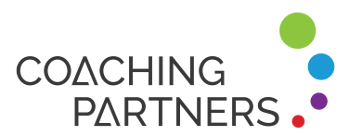As the industry of professional coaching matures organizations are beginning to appreciate the complexity and the importance of effectively managing executive coaching engagements. This article addresses three common challenges and suggestions for structuring and managing executive coaching engagements.
Sourcing coaches
Companies are getting better at screening and sourcing the coaches who will be given the honor of working with their valued executives. Still, it never ceases to surprise me as I am getting to know the stakeholders managing coaching engagements, how much misinformation is out there on how to source good coaches. The coaching industry is relatively new and poorly understood. My bias is towards utilizing the International Coaching Federation or other globally recognized coaching association to source trained, credentialed, experienced, ethical coaches. The days of “consultant” coaches who look good and can sell, but who really don’t understand what coaching is are rapidly fading. Sourcing ICF credentialed coaches is one simple way to make sure you are screening for quality.
The chemistry interview
The chemistry interview is a well established best practice in sourcing “best fit” coaches for executives as they seek “the right” coach for the coaching engagement. As it turns out, the chemistry interview is a very subjective process. I could write an entire article, and maybe I will, on the psychological underpinning of the chemistry interview and the cognitive biases that can lead executives to choosing a coach based on considerations having nothing to do with if the coach is good and/or if they are a great mutual fit. There are many potential pitfalls in the execution of the traditional chemistry interview. There are preparations that must be completed up front by the company, the executive who will be the coaching recipient, and by the coach, in order to have a meaningful and productive chemistry interview. A great coach will actively participate in the process, educate the company and its executives, and honestly discern if an engagement is likely to be a great mutual fit. This loops back to ICF ethics. It is an ethical coach’s responsibility to pay attention to, and address conflicts of interests as well as whether or not the coach continues to be the best fit to serve the client, or if the client should be referred elsewhere. Smart companies will educate themselves on best practices in chemistry interviews, create systems and processes to help their executives choose, educate executives on how to discern best fit through the chemistry interview, and partner with coaches who are truly partners in the process.
Aligning coaching engagements with business objectives while planning systemically
As team coaching and a systems approach to coaching emerges as an effective speciality in coaching in organizations, with it comes an increase in awareness that coaching in silos is a missed opportunity and can be a waste of money. This is not to imply that single coaching engagements are not valuable. They certainly can be. However, if we truly want to maximize our impact and our investment of time and money, we must focus on serving the system, and we must align coaching engagements with business priorities, thinking systemically as we plan and execute coordinated coaching engagements.
Coaching in organizations provides tremendous value. If you have ever been coached, you may agree, it can be a game changer for both the organization and the coaching client recipient. This is a fundamental reason why over $13 billion is being spend on business coaching in the US in 2020 and the coaching industry continues to burgeon. It can be a daunting task but planning and coordinating solid processes for coaching in your organization can have tremendous payoff over time. Great coaching is priceless.

